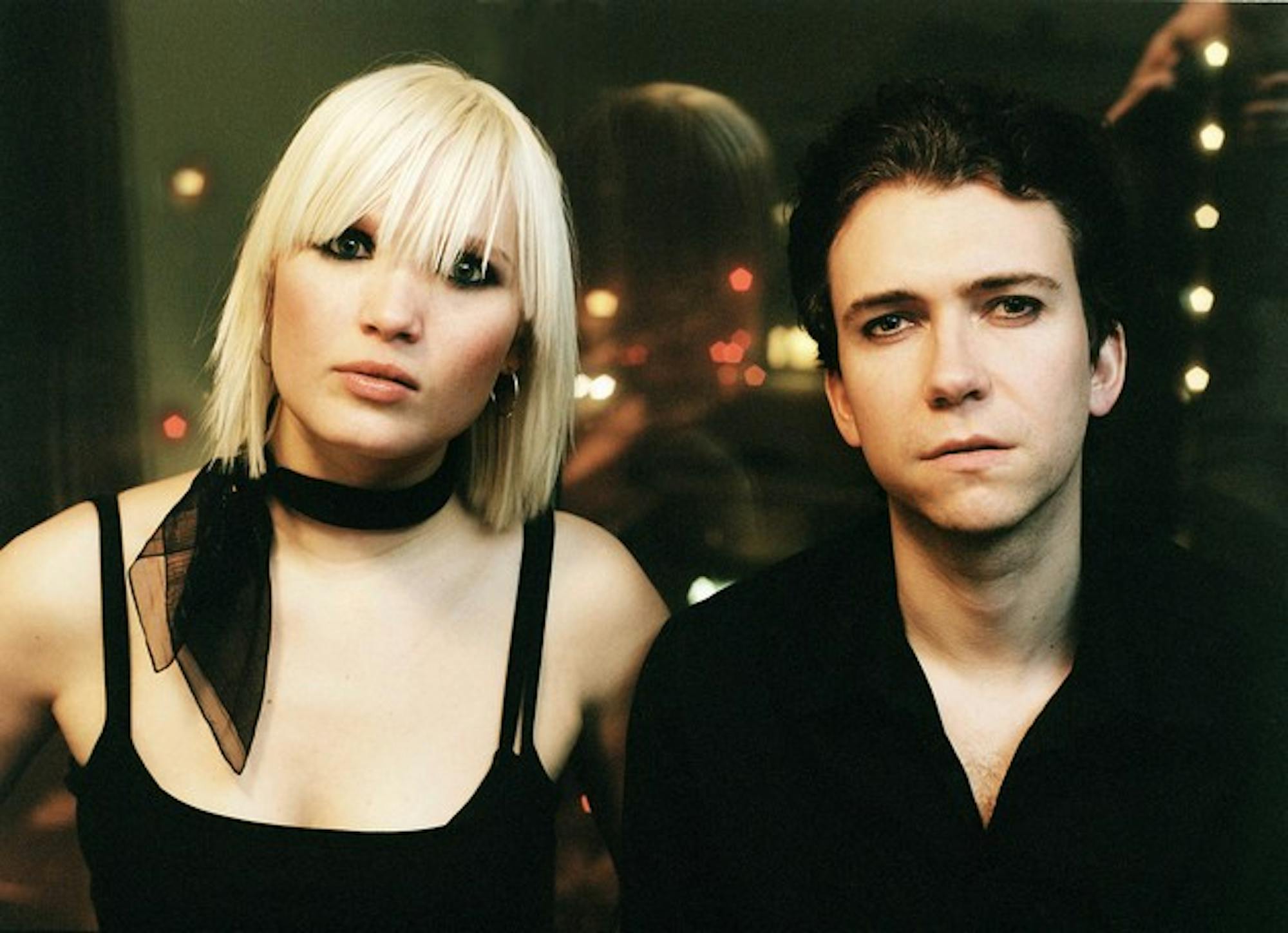Although they are a two-person band that dabbles in the loosely-defined umbrella genre known as "rock," The Raveonettes are nothing like their perhaps better-known rock duo counterparts, the White Stripes and the Black Keys. Those groups owe more to American roots rock and blues than do these Danes.
Sonically, "In and Out of Control" feels like an overview of early-1960s rock structures and chord progressions: familiar, non-invasive and highly accessible. The lead-off single "Bang!" owes much of its sunny vibe and catchiness to the influence of early Beach Boys hits like "Fun, Fun, Fun" and "Don't Worry Baby." Almost as if to highlight this connection, the chorus revolves around the lyric "Fu-fu-fun/All summer long." I swear I could hear Mike Love in the background during the bridge.
The Raveonettes, however, do not simply imitate past rock and roll tropes with this release as much as frontman Sune Rose Wagner's twangy Stratocaster seems to come straight out of the 1950s. Instead, they attempt to debase these old-school musical cues with highly compressed (and often artificial) drums, reverb-laden vocals and unsettling bursts of white noise.
Never does a song collapse under the weight of its lo-fi or noise rock elements. Even the static-driven "Break Up Girls!" drops into a more traditional groove by its second minute. The Raveonettes, it seems, are songwriters first and sonic experimenters second. The closest "In and Out of Control" comes to something experimental is the jerky and slightly unorthodox time signature driving "D.R.U.G.S." which is, in itself, a heavy-handed metaphor.
Perhaps the most interesting part of The Raveonettes' sound is the vocal balance between Sune Rose Wagner and Sharin Foo. Wagner's voice is light and airy a breathy near-falsetto that mixes seamlessly with Foo's more pointed delivery. The result is an atmospheric and androgynous vocal wash that goes down as easy as the instrumentation. Their blend, particularly on such harmony-heavy songs as "Bang!," is uncanny and almost a little robotic.
Strange, then, that the subject matter driving all these catchy and highly controlled songs is so dark and often morbid. Perhaps this is the out-of-control element referred to in the title the band's fixation on horrific things: abuse ("Break Up Girls!"), rape ("Boys Who Rape (Should All Be Destroyed)") and drug overdose ("Last Dance," their other single) are only some of the topics broached in "In and Out of Control."
This unsettling juxtaposition lies at the heart of the catchiest and also most explicitly dark track on the album: "Boys Who Rape (Should All Be Destroyed)." Beginning with a choppy and minimalist electronic beat, the chorus suddenly erupts in a wash of call-and-response harmony and a four-on-the-floor beat.
The verses, delicately sung by Sharin Foo, are occasionally cut up by Wagner's rockabilly-influenced guitar riffs before the chorus returns. There's even an a capella breakdown a pop hallmark I usually associate with Doobie Brothers songs and "Sloop John B."
These sonic elements, tied to such a frank and straightforward description of a horrific event, create a truly unsettling atmosphere.
In this way, "In and Out of Control" resembles the third album from art rock primogenitors The Velvet Underground. Having tamed their tendency to break out in bursts of feedback and electric viola, the group began crafting fully realized, structured tunes with more restraint. Considering they led that album off with "Candy Says" told from the point of view of a depressed transvestite perhaps The Raveonettes' way of dressing up uncomfortable topics is not as unusual as it may seem on the surface.
If nothing else, "In and Out of Control" is worth a listen. The album holds together well, even though some tracks seem to run together. For those unfamiliar with The Raveonettes, this album is a good way to start exploring their catalog: well produced, highly stylized and brief the running time is about 40 minutes. The iTunes digital album also includes a bonus track ("Echoes") and a video of stripped down acoustic versions of a few tracks an interesting dissection of these highly controlled songs.




